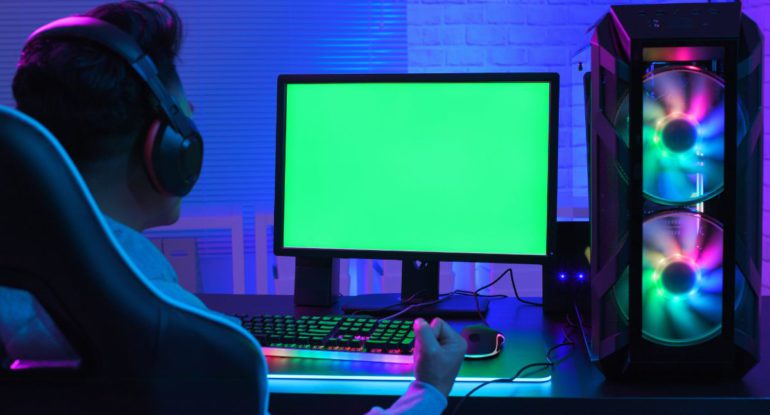Top 15 Things You Should Check Before Investing In Blockchain Gaming

In an era defined by rapid technological advancement, the convergence of blockchain technology and the gaming industry has emerged as a captivating yet intricate phenomenon. Blockchain gaming, a novel fusion of decentralized ledgers and interactive virtual worlds, has ignited considerable excitement among investors and gamers alike. However, as with any groundbreaking innovation, this novel marriage brings forth a panorama of complexities and potential pitfalls that must be acknowledged and analyzed.
Within the following discourse, we shall embark on an expedition into the multifaceted realm of blockchain gaming, peering beyond the captivating allure to unearth the top ten reasons that render investment in this domain a venture laden with heightened risk. By plumbing the depths of regulatory uncertainties, navigating the undulating landscape of cryptocurrency volatility, scrutinizing security concerns, dissecting scalability issues, and unmasking the enigmatic barriers to user adoption, we endeavor to shed light on the intricacies that cast a shadow over this alluring amalgamation. Furthermore, we shall traverse the labyrinthine corridors of market fragmentation, critique the artistic and functional quality of blockchain games, probe the challenges of interoperability, raise awareness of the environmental implications, and cast a discerning eye upon the unproven business models that underpin this nascent domain.
Through this comprehensive exploration, it is our intent to equip prospective investors and stakeholders with the discernment necessary to navigate the uncharted waters of blockchain gaming investment. While the opportunities are undeniably enticing, the tapestry of risks woven into this fabric demands meticulous consideration. This examination serves as a lantern to illuminate the intricacies and nuances often overshadowed by the exuberant promises, allowing for informed decision-making in a realm where innovation dances hand in hand with uncertainty.
Investing in blockchain gaming requires a thorough understanding of the unique challenges and opportunities that this emerging sector presents. Before committing your resources, it’s crucial to conduct comprehensive due diligence.
Here are 15 key aspects you should check before investing in blockchain gaming:

- Concept and Innovation: Assess the uniqueness and innovation of the blockchain game. Does it offer a novel gameplay experience, innovative mechanics, or groundbreaking features that set it apart from traditional games?
- Team Expertise: Research the development team’s experience in both gaming and blockchain technology. A strong team with a proven track record is more likely to deliver a successful project.
- Whitepaper Analysis: Carefully examine the project’s whitepaper. It should provide a clear explanation of the game’s mechanics, tokenomics, and underlying blockchain technology.
- Token Utility: Understand the role of the in-game tokens or assets within the ecosystem. Investigate how these tokens are used, their scarcity, and their potential value.
- Market Research: Analyze the target market for the game. Is there a demand for blockchain-based games in that niche? Research player preferences and trends.
- Regulatory Compliance: Investigate the project’s compliance with legal and regulatory requirements. Be aware of potential challenges related to virtual assets and cryptocurrencies.
- Partnerships and Collaborations: Look into the partnerships the project has established. Collaborations with reputable blockchain companies, gaming studios, or industry influencers can enhance credibility.
- Technology Stack: Understand the underlying blockchain technology. Is it a well-established and secure blockchain? How does the game integrate with it?
- Scalability and Speed: Check the blockchain’s scalability and transaction speed. Slow transactions and high fees can hinder gameplay and user adoption.
- Security Measures: Assess the security features of the game, including smart contract audits and vulnerability assessments. Security breaches can lead to financial losses and damage to reputation.
- Community Engagement: Evaluate the project’s engagement with the community. An active and supportive community can indicate a higher chance of success.
- Roadmap and Development Progress: Review the project’s roadmap and development milestones. A clear and achievable roadmap demonstrates the team’s commitment and planning.
- Gameplay Quality: Playtest the game if possible or watch gameplay videos. The quality of graphics, user experience, and overall gameplay should be engaging and enjoyable.
- Token Distribution: Examine how tokens are distributed, including allocations for the team, advisors, investors, and the community. Ensure a fair distribution model.
- Exit Strategy: Consider the project’s long-term viability and potential exit strategy. Will the game be sustainable in the long run? How will you be able to divest your investment if needed?
In the dynamic landscape of blockchain gaming, careful evaluation of these factors is essential to make informed investment decisions. Remember that while the potential rewards can be significant, the risks are also substantial. Conduct thorough research, seek expert opinions, and stay updated with industry trends to navigate this evolving space successfully.
Also, read – Blockchain Gaming: Revenue Via Streaming And Future
All about Blockchain gaming investment

The intersection of blockchain technology and gaming has sparked massive interest, attracting investors eager to capitalize on the potential of play-to-earn (P2E) models and emerging virtual economies. However, before diving headfirst, it’s crucial to understand the intricacies of blockchain gaming investment and navigate its inherent risks and uncertainties.
Understanding the Basics:
- Play-to-Earn (P2E): This core concept rewards players with cryptocurrencies or NFTs (non-fungible tokens) for in-game activities like completing quests, battling opponents, or collecting resources. These “earn” aspects introduce potential financial gains, attracting players and investors alike.
- Blockchain Technology: P2E games often leverage blockchain technology for asset ownership, secure transactions, and transparent record-keeping, enabling players to truly own and trade their in-game items.
- Tokenomics: The token economics of a game define how its in-game currency (tokens) are generated, distributed, and used within the game’s ecosystem. Understanding tokenomics is crucial for evaluating a game’s potential earning potential and sustainability.
Investment Avenues and Considerations:
- In-game assets (NFTs): Owning in-game items like avatars, land parcels, or unique weapons represented as NFTs grants ownership and potential trading opportunities. While promising, market fluctuations and the game’s lifespan impact value.
- Game tokens: Buying a game’s native token early can offer potential gains if the game and its token experience adoption and use. However, volatility and uncertain long-term utility pose risks.
- Gaming guilds: Investing in or joining guilds can offer diversified exposure to multiple games and economies, spreading risk and potentially amplifying earning potential, but careful due diligence is necessary.
- Game development/infrastructure projects: Supporting early-stage blockchain gaming projects through token offerings or other investment schemes can yield significant returns upon success, but the risks are inherently high due to the speculative nature of early-stage ventures.
Key Considerations and Cautions:
- High Volatility: The crypto and NFT markets are inherently volatile, leading to unpredictable price swings and potential losses. Be prepared for this volatility and only invest what you can afford to lose.
- Rug Pulls and Scams: The industry is susceptible to scams and “rug pulls” where developers abandon projects after taking investor funds. Thorough research and due diligence are crucial to avoid fraudulent schemes.
- Uncertain Regulations: Regulatory frameworks surrounding crypto and blockchain gaming are still evolving, introducing potential uncertainties and future changes that could impact investments.
- Sustainable Ecosystems: Not all P2E games have sustainable economies. Prioritize games with well-designed tokenomics, engaging gameplay, and long-term vision to avoid unsustainable models focused solely on short-term financial gains.
Staying Informed and Making Responsible Choices:
- Actively research game whitepapers, tokenomics models, and team backgrounds.
- Engage with game communities and developers to understand their plans and vision.
- Diversify your investments across different games and asset classes to mitigate risk.
- Prioritize ethical and responsible projects that contribute to the long-term growth of the blockchain gaming ecosystem.
- Remember, blockchain gaming is still in its early stages. Treat it as a high-risk, high-reward investment and never invest more than you can afford to lose.
By understanding the core concepts, risks, and considerations, you can approach blockchain gaming investment with a more informed and responsible mindset. As this dynamic field evolves, staying curious, vigilant, and adaptive will be key to navigating its exciting possibilities and navigating the associated risks.
I hope this comprehensive guide provides a valuable starting point for your exploration of blockchain gaming investment. Remember, always prioritize responsible due diligence and never invest based solely on hype or speculation.
Top 10 Blockchain Gaming Risk Factors

- Regulatory Uncertainty: The intersection of blockchain and gaming brings regulatory challenges as authorities grapple with classifying virtual assets and overseeing their transactions. This uncertainty could impact investment returns. 🕵️♂️📜
- Volatility of Cryptocurrencies: Most blockchain games use cryptocurrencies or tokens for in-game transactions. The volatile nature of these digital assets introduces financial risk, potentially causing rapid value fluctuations. 💹📉📈
- Security Concerns: Blockchain gaming relies heavily on smart contracts and decentralized systems. If vulnerabilities are exploited, hackers could steal assets or disrupt gameplay, leading to financial losses and reputational damage. 🔐🚫💻
- Scalability Issues: Many blockchain platforms face scalability challenges, causing slow transaction speeds and high fees during peak usage. This could deter gamers and investors alike, affecting the success of blockchain games. 🐢💸⌛
- User Adoption Barriers: Embracing blockchain technology requires users to navigate wallet setups, private key management, and other technicalities. This complexity might limit mainstream adoption and potential investor interest. 📱🔑🚫
- Market Fragmentation: The blockchain gaming space is crowded, with numerous platforms and projects vying for attention. This fragmentation could lead to market saturation, making it harder for individual games to stand out. 🌐🧩🕹️
- Lack of Quality Content: While some blockchain games are innovative, many suffer from poor gameplay and graphics due to the focus on integrating blockchain. Investors might be skeptical of backing projects lacking in quality. 🎮📉📷
- Interoperability Challenges: Seamless asset transfer between different blockchain games is often touted but not always realized. Investors might worry about assets becoming stranded in a single game’s ecosystem. ↔️🔄🌌
- Environmental Concerns: Proof-of-work blockchains, often used in gaming, require substantial energy consumption. As environmental awareness grows, investments in energy-intensive projects could face backlash. 🌍🔌❌
- Unproven Business Models: Traditional gaming revenue models don’t always translate well to blockchain games. Experimentation with tokenomics and in-game economies could lead to uncertainty about ROI for investors. 💼🔍💸
Remember, while blockchain gaming holds promise, potential investors should thoroughly research projects, consider the risks, and assess their risk tolerance before diving in. 👓🧐
9/13 I think we can all agree that #DeFi is an amazing use case for #Web3
However, I believe gaming is a better vertical in terms of onboarding the next wave to the blockchain world
Billions of people play games already, and there is less financial risk than with investing 🔒
— EGLD Ed ⚡️🌿 (@EGLDed) August 19, 2023
Conclusion:
In the tapestry of technological evolution, blockchain gaming emerges as a vibrant thread interwoven with both potential and peril. The allure of decentralized systems, novel gameplay mechanics, and the promise of tokenized ownership captures the imagination of those seeking new horizons within the gaming landscape. Yet, our journey into the heart of blockchain gaming has unearthed a series of challenges that accentuate the intricacies of investing in this arena.
From the murkiness of regulatory waters to the volatility of cryptocurrencies, the specter of security vulnerabilities, and the echoes of scalability concerns, these challenges paint a more nuanced portrait of the blockchain gaming narrative. As stakeholders navigate through the vibrant but uncertain waters of blockchain gaming investments, a cautious appreciation of the multifaceted risks is essential.
Amid the fragmented market landscape and nascent business models, the discerning investor must approach the promise of blockchain gaming with a balanced blend of enthusiasm and prudence. Just as a skilled gamer analyzes each move meticulously, so too must potential investors assess these risks with a strategic eye, cognizant of both the glittering rewards and the potential pitfalls.
In summation, the realm of blockchain gaming beckons with untold potential, but it does so while casting shadows of uncertainty. By unraveling the complex layers of risk, we hope to empower stakeholders to make well-informed decisions, fostering a more resilient and thoughtful approach to investing in this nascent but captivating arena. The fusion of blockchain and gaming is an unfolding story, and as with any narrative, it is only through understanding the plot’s complexities that one can fully appreciate the journey ahead.
7 years ago I was on @CNBC @Bloomberg #JoeRogan trying to tell you all about bitcoin and why I was investing in blockchain technology. Now I'm telling you that there's a gaming revolution thx to blockchain tech and it's happening on @SorareHQ @axieinfinity @SkyweaverGame pic.twitter.com/0XLF1KcUrQ
— Alexis Ohanian 🇦🇲 (@alexisohanian) July 30, 2021



























































